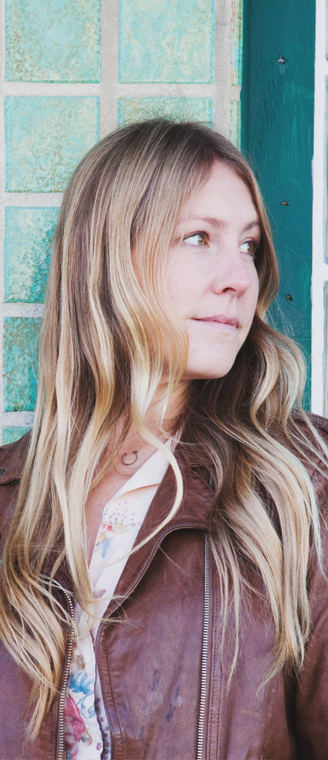“Turn it all upside down,” Zoe Muth sings on the opening track of her third full-length album, World of Strangers. “See the stars when we’re looking at the ground, shining all around.” Muth brings us ten heartrending tales of the leaving and the left behind in her trademark style of infusing moments of despair with hope and levity. This time around she has made some changes, channeling a wider array of influences ranging from classic country ballads to early folk-rock.
First making her name in the Pacific Northwest, where she’s been called “Seattle’s Emmylou,” and heralded as one of the best songwriters to come out of Washington State, Muth has spent the last three years touring across the U.S. and Europe. Playing bars and cafes as a young pre-school teacher, she saved up her minimum wage earnings and beer bucket tips to pay for her 2009 debut album, Zoe Muth and the Lost High Rollers. That album, along with her 2011 follow up, Starlight Hotel, went on to garner praise from the international press, and landed on No Depression’s “Top 50 Albums” list in their respective years.
“Many of these new songs had been in my head for a long time, and I needed a change of scenery and sound to let them find their way out,” says Muth when asked about the writing on World of Strangers. On New Year’s Day 2013, she uprooted herself from Seattle, and set out for Austin, Texas. She was soon introduced to producer and bassist George Reiff, who assembled a studio band of some of Austin’s most talented musicians, including Brad Rice (Keith Urban, Son Volt), Martie Maguire (Dixie Chicks) and Bruce Robison. Grammy-winner Steven Christensen assisted in mixing.
“This was a whole new studio experience for me, more experimental,” says Muth. “We agreed from the start that we wanted something different, more ethereal, but George took these songs in a direction I wasn’t expecting. It worked so well because we have so many common influences. It was really exciting, how the musicians would jump from one idea to another without hesitation. We were able to capture all the emotion you hear in the songs because the band could get them down in just a few takes. I knew this was why I had come to Austin.”
You’d hear “Mama Needs a Margarita” and “Waltz of the Wayward Wind” in any booze-soaked saloon, but Muth’s grandest departure from her earlier sound can be heard in the decidedly un-honky-tonk, “Annabelle,” where the conversation between cello, piano, and violin are subtly underscored with indie organ effects that twinkle like electric stars. The influence of early Fairport Convention echoes in the Ronnie Lane cover “April Fool,” and bits of the Byrds and Burritos shine through in Mike Hardwick and Geoff Queen’s pedal steel. In “Taken All You Wanted,” Brad Rice’s finger picking falls and weeps, bringing to mind the prettiest picking of John Fahey or Leo Kottke.
With a voice unadorned and almost conversational, Muth makes the every day more clear and compelling: “I don’t want to die where the sleeping dogs lie, and the silence is stronger than stone. If I have to wander, through the lightning and the thunder, must I always go alone?” she sings on “Somebody I Know”, a standout duet featuring legendary Texas songwriter Bruce Robison. It’s an end of the world lament beckoning the listener to follow along: “We’ll haunt the hidden places, like the embers in the afterglow.”
World of Strangers is slow building and spacious, often dream-like and fearless in its demand of your time and attention. Muth has taken risks for the sake of the song, asking the listener to let go of expectations. And while the album sometimes begs you to two-step and waltz, more often than not, what it wants is for you to turn up the volume, turn the lights down low and just listen.

